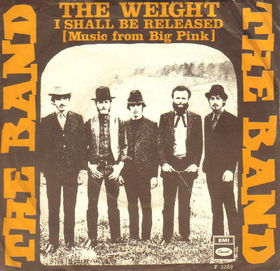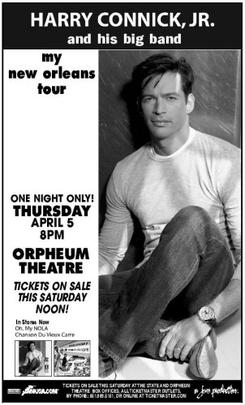Related Research Articles

Ishi was the last known member of the Native American Yahi people from the present-day state of California in the United States. The rest of the Yahi were killed in the California genocide in the 19th century. Widely described as the "last wild Indian" in the U.S., Ishi lived most of his life isolated from modern North American culture, and was the last known Native manufacturer of stone arrowheads. In 1911, aged 50, he emerged at a barn and corral, 2 mi (3.2 km) from downtown Oroville, California.

Joseph Lincoln Steffens was an American investigative journalist and one of the leading muckrakers of the Progressive Era in the early 20th century. He launched a series of articles in McClure's, called "Tweed Days in St. Louis", that would later be published together in a book titled The Shame of the Cities. He is remembered for investigating corruption in municipal government in American cities and for his leftist values.

Oski the Bear (Oski) is the official mascot of the University of California, Berkeley ("Cal"), representing the California Golden Bears. Named after the Oski Yell, he made his debut at a freshman rally in the Greek Theatre on September 25, 1941. Prior to his debut, live bears were used as Cal mascots.

Bowles Hall is a coed residential college at the University of California, Berkeley, known for its unique traditions, parties, and camaraderie. Designed by George W. Kelham, the building was the first residence hall on campus, dedicated in 1929, and was California's first state-owned residence hall. It was built in 1928 with a $350,000 grant from Mary McNear Bowles in memory of her husband, Berkeley alumnus and University of California Regent Phillip E. Bowles. Mr. Bowles was said to have three loves: horses, horticulture and the University of California.

"Take Me Home, Country Roads", also known simply as "Country Roads", is a song written by Bill Danoff, Taffy Nivert and John Denver. It was released as a single performed by Denver on April 12, 1971, peaking at number two on Billboard's US Hot 100 singles for the week ending August 28, 1971. The song was a success on its initial release and was certified Gold by the RIAA on August 18, 1971, and Platinum on April 10, 2017. The song became one of John Denver's most popular songs. It has continued to sell, with over 1.6 million digital copies sold in the United States.

"The Weight" is a song by the Canadian-American group the Band that was released as a single in 1968 and on the group's debut album Music from Big Pink. It was their first release under this name, after their previous releases as Canadian Squires and Levon and the Hawks. Written by Band member Robbie Robertson, the song is about a visitor's experiences in a town mentioned in the lyric's first line as Nazareth. "The Weight" has significantly influenced American popular music, having been listed as No. 41 on Rolling Stone's 500 Greatest Songs of All Time published in 2004. Pitchfork Media named it the 13th best song of the 1960s, and the Rock and Roll Hall of Fame named it one of the 500 Songs that Shaped Rock and Roll. PBS, which broadcast performances of the song on Ramble at the Ryman (2011), Austin City Limits (2012), and Quick Hits (2012), describes it as "a masterpiece of Biblical allusions, enigmatic lines and iconic characters" and notes its enduring popularity as "an essential part of the American songbook."

Collins & Harlan, the team of American singers Arthur Collins and Byron G. Harlan, formed a popular comic duo between 1903 and 1926. They sang ragtime standards as well as what were known as "coon songs" – music sung by white performers in a black dialect. Their material also employed many other stereotypes of the time including Irishmen and farmers. Rival recording artist Billy Murray nicknamed them "The Half-Ton Duo" as both men were rather overweight. Collins and Harlan produced many number one hits with recordings of minstrel songs such as "My Gal Irene", "I Know Dat I'll be Happy Til I Die", "Who Do You Love?" and "Down Among the Sugarcane". Their song "That Funny Jas Band from Dixieland", recorded November 8, 1916, is among the first recorded uses of the word "jas" which eventually evolved to "jass", and to the current spelling "jazz".

The University of California Marching Band, usually shortened to Cal Band, is the marching band for the University of California, Berkeley. While it is administered under the auspices of the university, the Cal Band is almost completely student-run and represents Cal at sporting events and other social gatherings. The name of the band is officially "The University of California Band" according to the constitution, but is typically called "The University of California Marching Band" or "The Cal Band". When the band marches out of Memorial Stadium's North Tunnel for football pre-games, it is referred to as "The Pacesetter of College Marching Bands, the Pride of California".

Enter the Haggis is a Canadian Celtic rock band based in Toronto. The band was founded in 1995 by Craig Downie, the only remaining original member in the lineup, which currently consists of Downie, Brian Buchanan, Trevor Lewington, Caroline Browning (bass), and Tom Barraco (drums). For about a year, starting in late 2014, they recorded and performed under the name Jubilee Riots, and released their eighth studio album Penny Black under that name, before returning to the original name.

"Tiger Rag" is a jazz standard that was recorded and copyrighted by the Original Dixieland Jass Band in 1917. It is one of the most recorded jazz compositions. In 2003, the 1918 recording of "Tiger Rag" was entered into the U.S. Library of Congress National Recording Registry.

Daniel Moses Barker was an American jazz musician, vocalist, and author from New Orleans. He was a rhythm guitarist for Cab Calloway, Lucky Millinder and Benny Carter during the 1930s.
"One More Drink for the Four of Us" is a traditional drinking and marching song. It became popular during the First World War, and has been widely repurposed for other marches, college bands, and social clubs. It is referenced in Ulysses and Finnegans Wake.

"Oh Happy Day" is a 1967 gospel music arrangement of the 1755 hymn by clergyman Philip Doddridge. Recorded by the Edwin Hawkins Singers, it became an international hit in 1969, reaching No. 4 on the US Singles Chart, No. 1 in France, Germany, and the Netherlands and No. 2 on the Canadian Singles Chart, UK Singles Chart, and Irish Singles Chart. It has since become a gospel music standard, selling over 7 million copies worldwide, making it the second best-selling gospel song of all time.
Robert Alexander Scobey Jr. was an American jazz trumpet player of traditional or Dixieland music based originally in the San Francisco area and later in Chicago, Illinois. He was born in Tucumcari, New Mexico, and died in Montreal, Quebec, Canada.

The My New Orleans Tour was a 2007 concert tour by American singer, pianist, and actor Harry Connick Jr. backed by his big band. The tour promoted his albums Oh, My NOLA and Chanson du Vieux Carré. The first concert of the tour was on February 23, 2007 at the Mizner Park Amphitheatre in Boca Raton, Florida. The first part of the tour took place in the USA and Canada. The second part of the tour was in Europe, and in 2008 the tour came to Asia and Australia.

OneRepublic is an American pop rock band formed in Colorado Springs, Colorado, in 2002. The lineup currently consists of Ryan Tedder, Zach Filkins, Drew Brown, Brent Kutzle, Eddie Fisher (drums), and Brian Willett.
Leeds "Lee" Collins was an American jazz trumpeter.
"Muskrat Ramble" is a jazz composition written by Kid Ory in 1926. It was first recorded on February 26, 1926, by Louis Armstrong and his Hot Five, and became the group's most frequently recorded piece. It was paired on the flip side with another one of Armstrong's hits, "Heebie Jeebies." It was a prominent part of the Dixieland revival repertoire in the 1930s and 1940s, and was recorded by Bob Crosby, Roy Eldridge, Lionel Hampton, Woody Herman, Muggsy Spanier, Chet Atkins, Lu Watters, the Andrews Sisters, Harry James, and Al Hirt, among others. It is considered a part of the jazz standard repertoire.
Papa Celestin's Golden Wedding is a studio album released by Papa Celestin and His New Orleans Band in 1955 on a Southland 10-inch LP record S- LP 206. The album was released posthumously, consisting of the last recordings made by Celestin, who died on December 15, 1954.
"Oh, Didn't He Ramble" is a New Orleans jazz standard, copyrighted in 1902 by J. Rosamond Johnson, James Weldon Johnson, and Bob Cole. It is frequently used at the end of jazz funerals.
References
- 1 2 ""California Drinking Song" - Cal Songs". University of California Marching Band. 1969-02-18. Archived from the original on 2012-08-18. Retrieved 2012-08-18.
- ↑ Waltz, Bob. "Didn't He Ramble". www.lizlyle.lofgrens.org. Retrieved 4 September 2018.
- ↑ "Didn't He Ramble". Preservation Hall Foundation. Retrieved 4 September 2018.
- ↑ "Dick Pryne, longtime Times news editor, dies at 96". seattletimes.com. 20 March 2015. Retrieved 4 September 2018.
- ↑ "George L. Garrigues, Loud Bark and Curious Eyes (1997), Los Angeles, page 57". Archived from the original on 2002-06-18. Retrieved 2002-06-18.